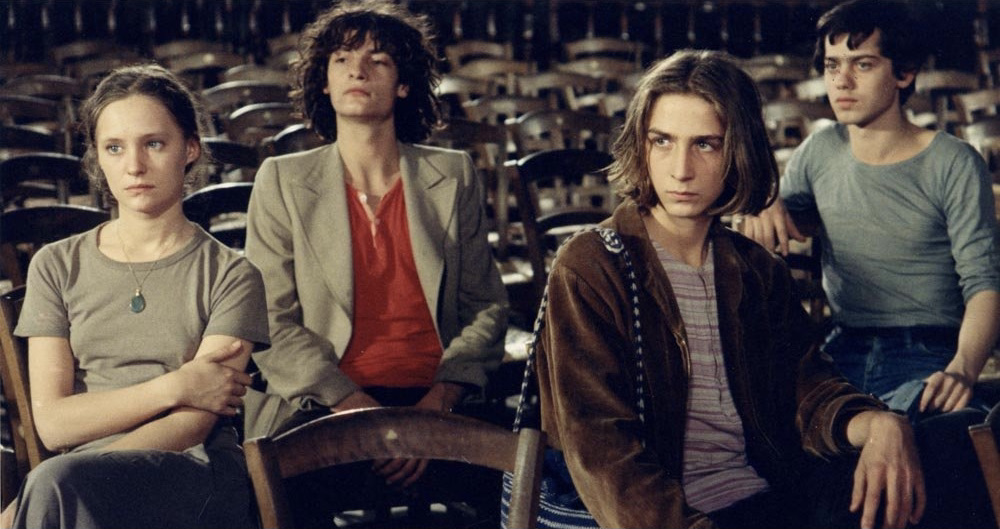I’ve always held dear to my heart films by directors I love that are thought to be lesser works, or simply aren’t as well-known. I find myself desperately trying to turn friends onto them and writing about them endlessly. When you really love movies, there are always these oddball films that can touch you in ways the more famous ones do not. Here are 21 “bastard” children of some of my favorite directors.
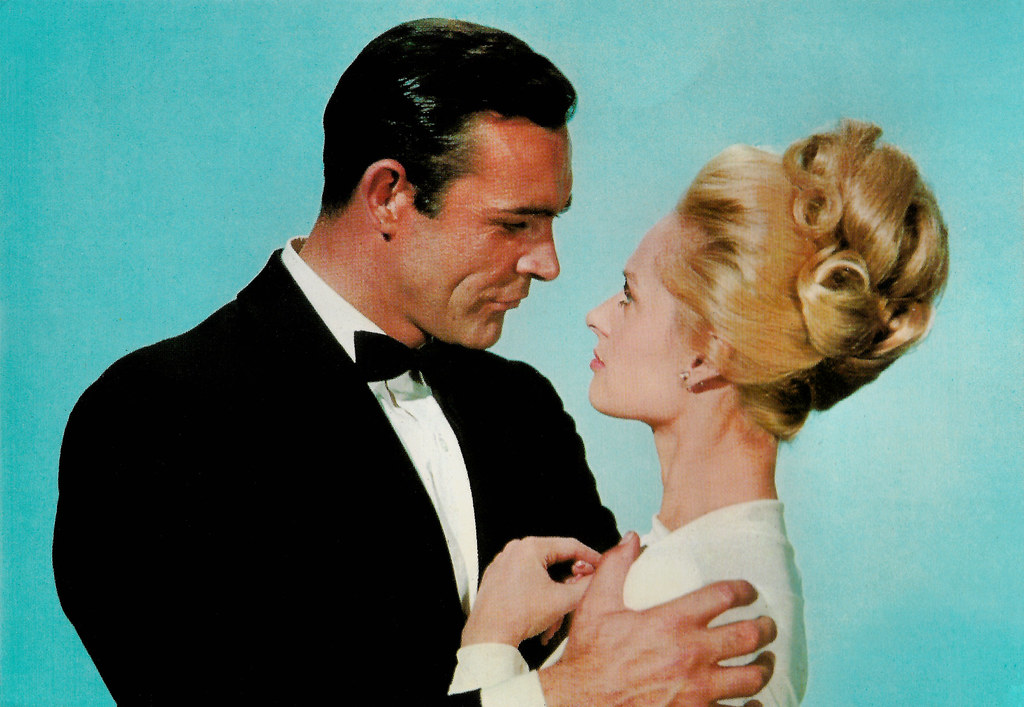
Marnie (Alfred Hitchcock) Why do I keep returning to what was considered a misstep by the master director? This chilly tale of a psychologically damaged thief (Tippi Hedren) always makes me insane. Maybe it’s the flat affect of Hedren’s performance. Or the unsettling wedding night sexual assault (by husband Sean Connery) that was rumored to be the reason Hitchcock wanted to make the film. Or the wonderful artificial back-drops. And that stunning, symphonic Bernard Herrmann score! All these reasons and more make me revisit this movie repeatedly. I am unreasonably obsessed over it.
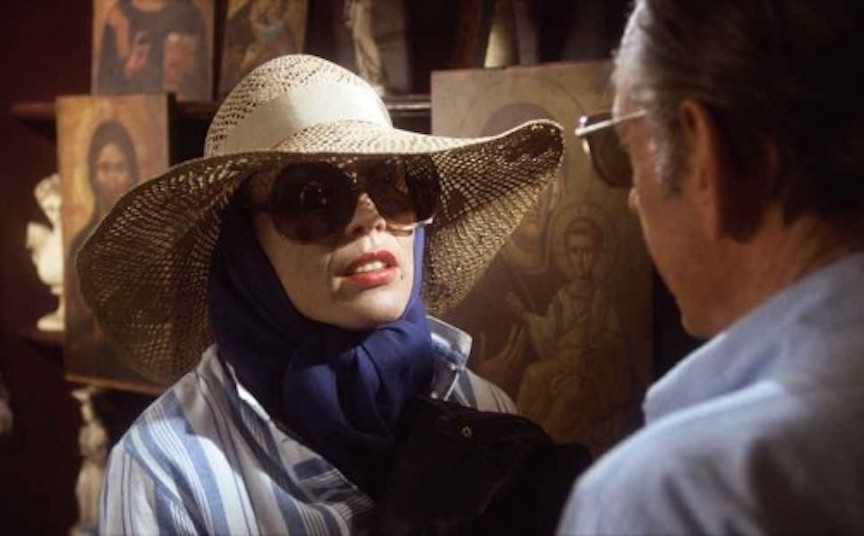
Fedora (Billy Wilder) Critics were pretty dismissive about Billy Wilder’s later films- but there are gems like The Private Life of Sherlock Holmes and this film, which stars William Holden as a down-on-his-luck director named Barry Detweiler whose only chance for a film deal is to coax the mysterious Garbo-esque film legend Fedora (Marthe Keller) out of retirement. Traveling to a small, guarded island in the Mediterranean where she is ensconced, he encounters the menacing, earring-wearing doctor (Jose Ferrer), a wheelchair-bound countess (Hildegard Knef) and vicious attack dogs. As the mystery behind Fedora deepens, Wilder weaves a cynical yet romantic fable around the Hollywood system, age and the need for glamour. Based on a Tom Tryon novella, this is Sunset Boulevard with heart.
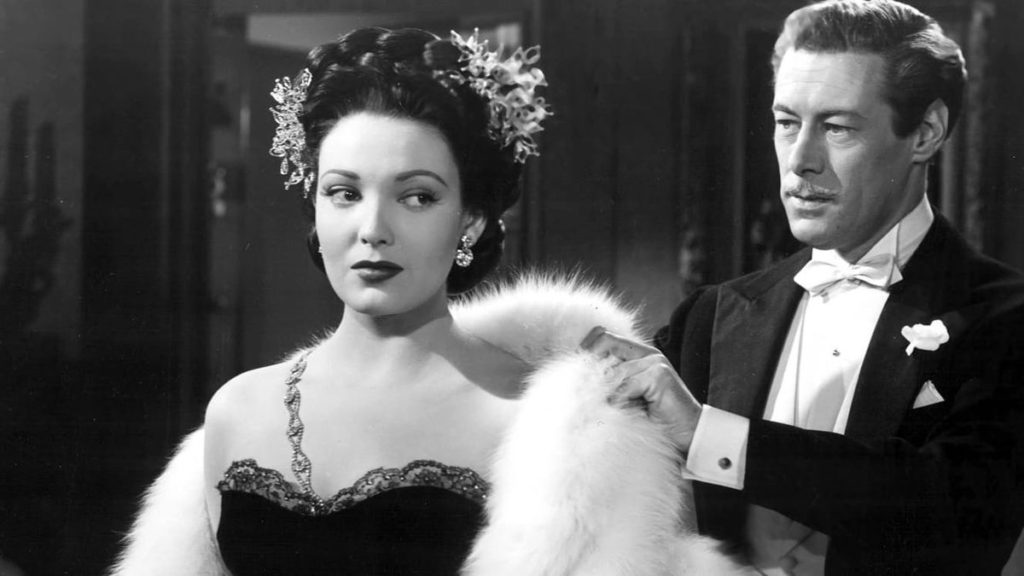
Unfaithfully Yours (Preston Sturges) Jet-black comedy about a famous orchestra leader (Rex Harrison) who wrongly assumes his beautiful wife (luscious Linda Darnell) is cheating on him. So, he devises three possible scenarios of how to murder her (fantasized to three classical pieces he is conducting). While it often is screamingly funny (Sturges was the rare director to expertly mix physical comedy with sparkling, sophisticated wit), it also is surprisingly lovely and romantic. I am always shocked to find out how many people are unaware of this comic gem.
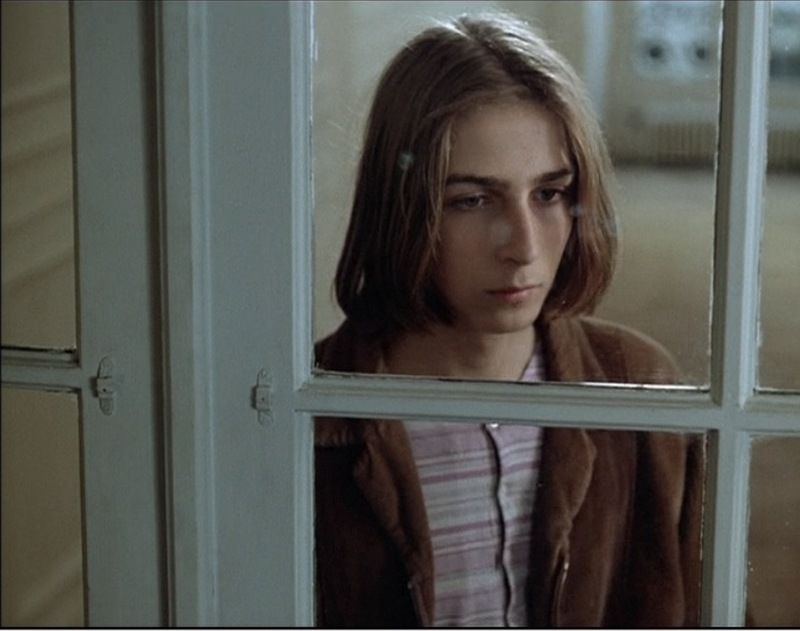
The Devil, Probably (Robert Bresson) The Paris student-youth movement of the 60s as seen through the eyes of the French master Robert Bresson (Pickpocket): detached, seemingly bright but hopelessly disillusioned. The film opens with newspaper headlines announcing the suicide/murder of a student named Charles (Antoine Monnier). Bresson then retraces the events leading to the young man’s demise. The long-haired, sullen Charles juggles girlfriends and spouts political rhetoric but longs to end his psychic suffering. Bresson films Charles’ cosmic slide in his inimitable austere way.
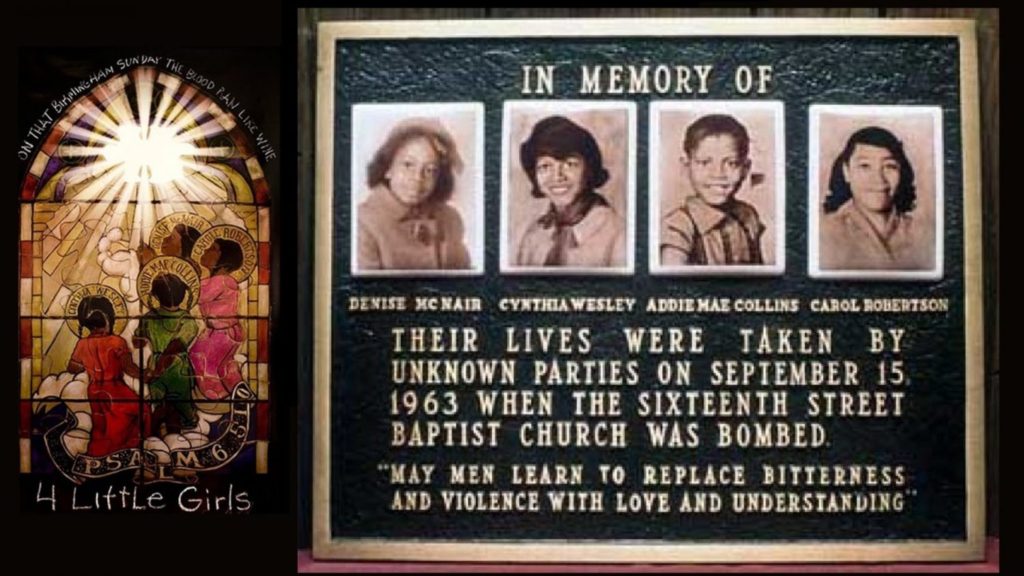
4 Little Girls (Spike Lee). A devastating account of the racist bombing of a church in Birmingham, Alabama on a Sunday morning in 1963 that resulted in the deaths of four young girls. This angry and heartbreaking documentary by Spike Lee should be better known. He brings the period explosively to life with interviews with those who were struggling for integration during that turbulent time, as well as with the victims’ parents, sisters, and friends for whom the years have not dulled their pain and fury.
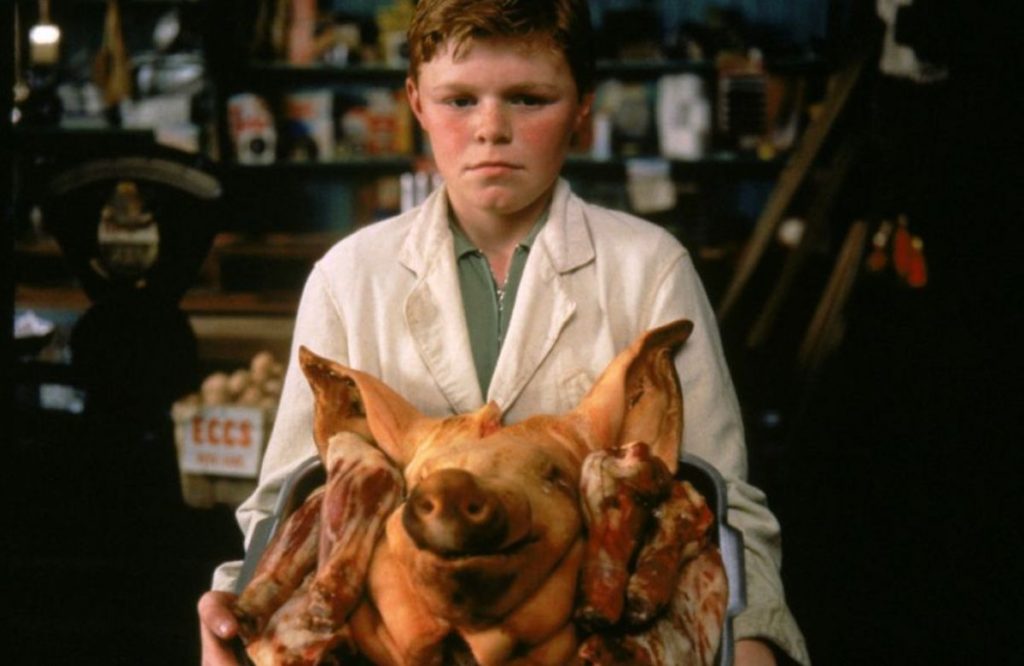
The Butcher Boy (Neil Jordan). Sure, The Crying Game is great, but not enough people saw this masterful adaptation of Patrick McCabe’s novel. It’s a Joycean childhood howl set in 1960s Ireland. Meet the town terror: redheaded, moon-faced 12-year-old Francie Brady (the astounding Eamonn Owens). The son of an alcoholic, trumpet-playing father (Stephen Rea) and a suicidal mother (Aisling O’Sullivan), he raucously careens through the streets with his best friend Joe (Alan Boyle). Francie’s saga takes him from reform school to an insane asylum, until the demons overwhelm him, propelling him to commit a monstrous crime. Jordan’s film crackles with blasphemous humor and surreal poetry.
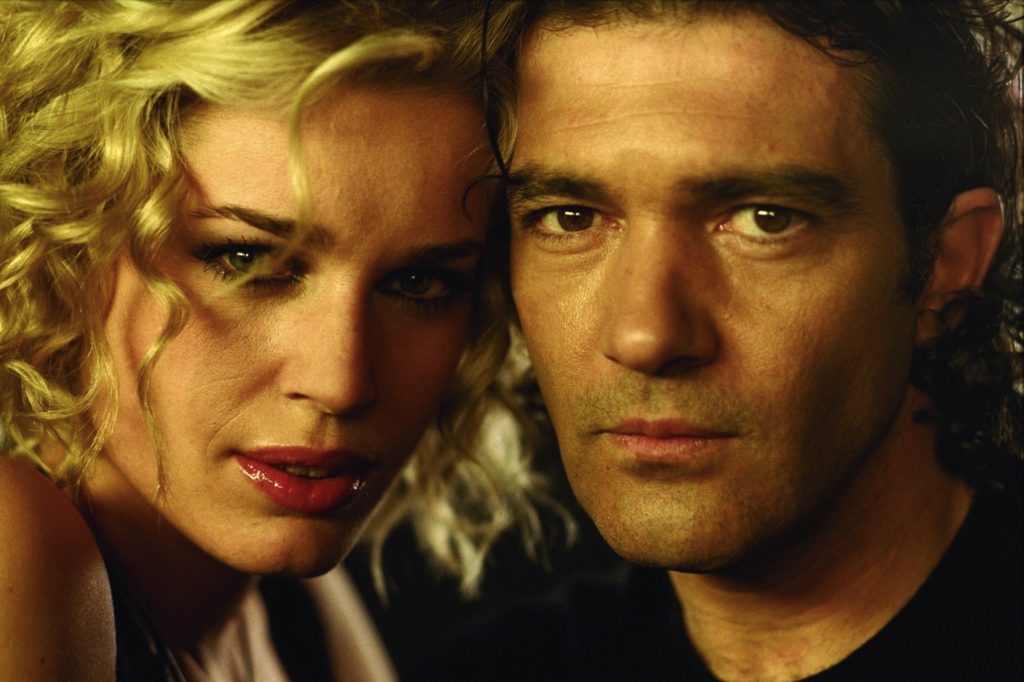
Femme Fatale (Brian De Palma) For all those who love Brian De Palma this was a return to form for the director. Gorgeous Rebecca Romijn is Laure, a daring but devious lesbian jewel thief, who double-crosses her partners in a diamond heist during the 2001 Cannes Film festival (a sequence that has the witty fluidity of the museum scene in Dressed to Kill). The plot is a preposterous send-up of all deadly-dame movies; eventually, the twists and turns entangle Antonio Banderas, who plays a paparazzi snared in Laure’s web. Thierry Arbogast‘s camerawork crackles with the wicked invention De Palma showed in The Fury.
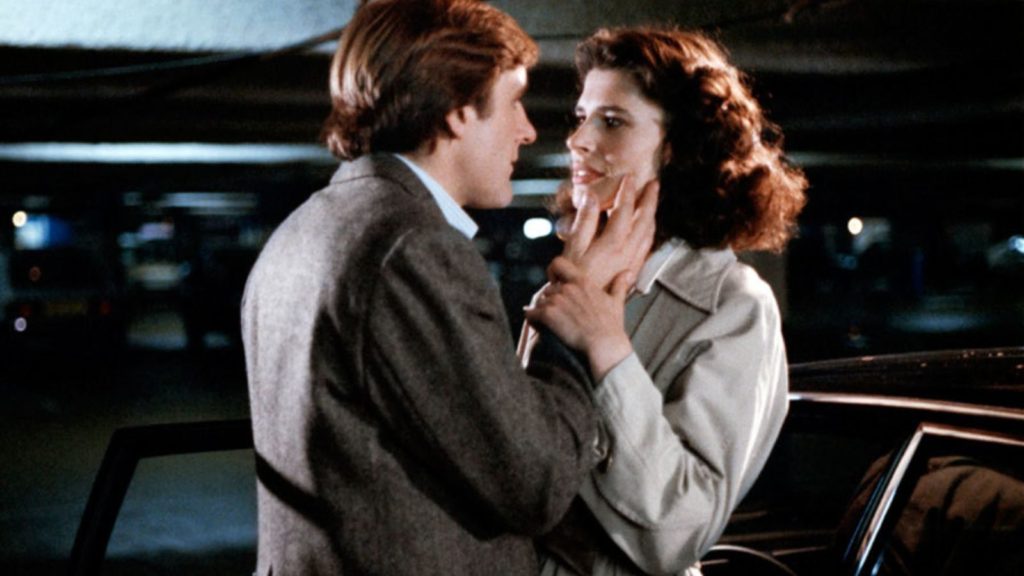
The Woman Next Door (Francois Truffaut) A stunning and devastating tale of obsession starring Fanny Ardant and Gerard Depardieu as neighbors who disastrously rekindle an old affair. The glorious score by Georges Delerue hints at the swooning, darkly romantic doom down the road. I’ve rarely seen a movie that captured the erotic danger and illicit passion quite like this Truffaut film, and it has haunted me ever since I first saw it.
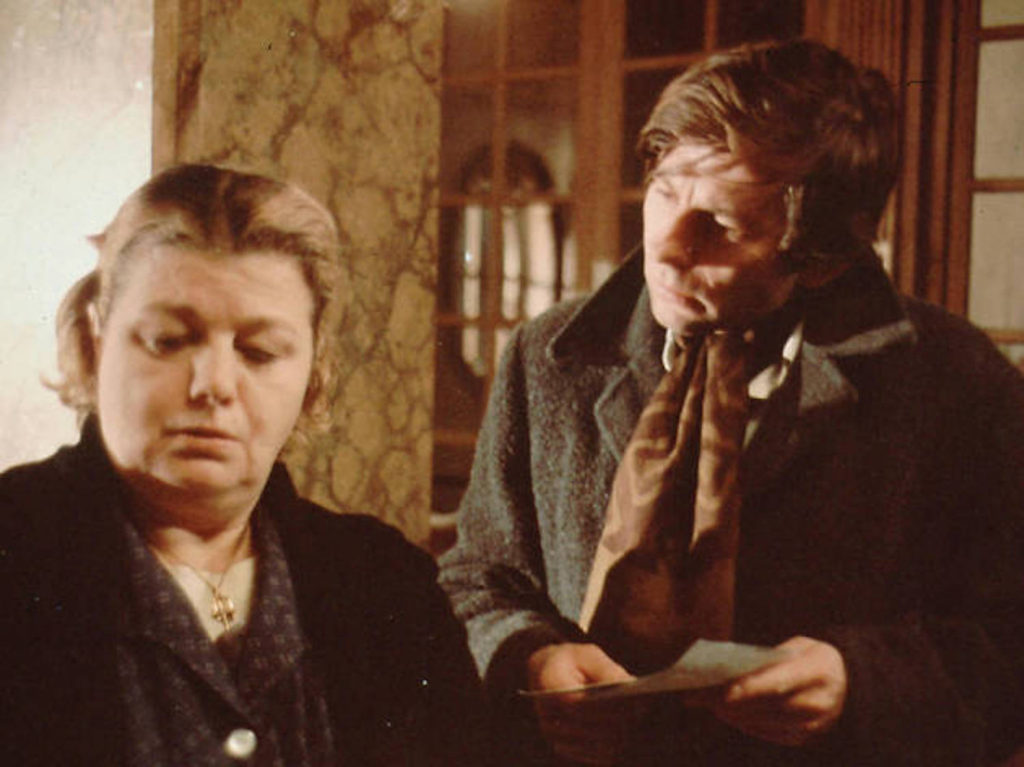
The Tenant (Roman Polanski) A great Roman Polanski psychological thriller set in France. Polanski plays a man who rents an apartment where the last tenant attempted suicide by jumping out of a window. He slowly slides into paranoia and madness himself. Shelley Winters plays the nasty concierge and the other ominous neighbors include Melvyn Douglas, Lila Kedrova and Jo Van Fleet. There are such perverse and dark-humored turns as Polanski’s character starts transforming into the former tenant in his mind. I have watched this film countless times and it gets better and creepier.
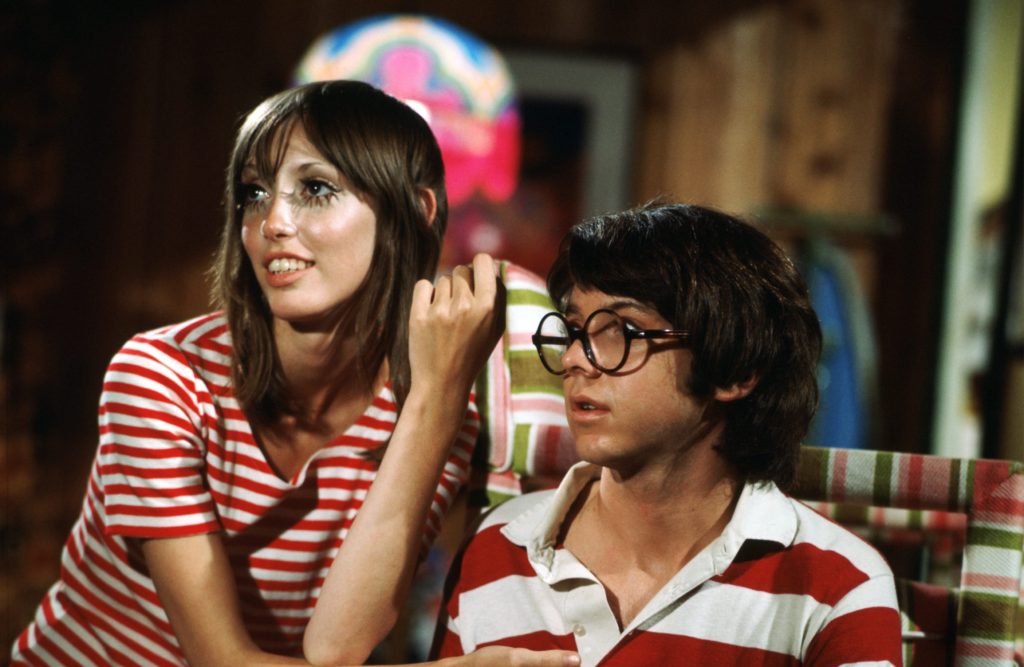
Brewster McCloud (Robert Altman) A 1970 Robert Altman (Nashville) film starring Bud Cort as a weirdo hiding out in the Houston Astrodome trying to create a home-made flying contraption. Filled with Altman’s wonderful repertoire like Shelley Duvall, Sally Kellerman, Michael Murphy, John Schuck, and Bert Remsen. Not to mention a glorious cameo by the Wicked Witch herself Margaret Hamilton. A wonderful example of early Altman’s wildly creative, stoner sensibility.
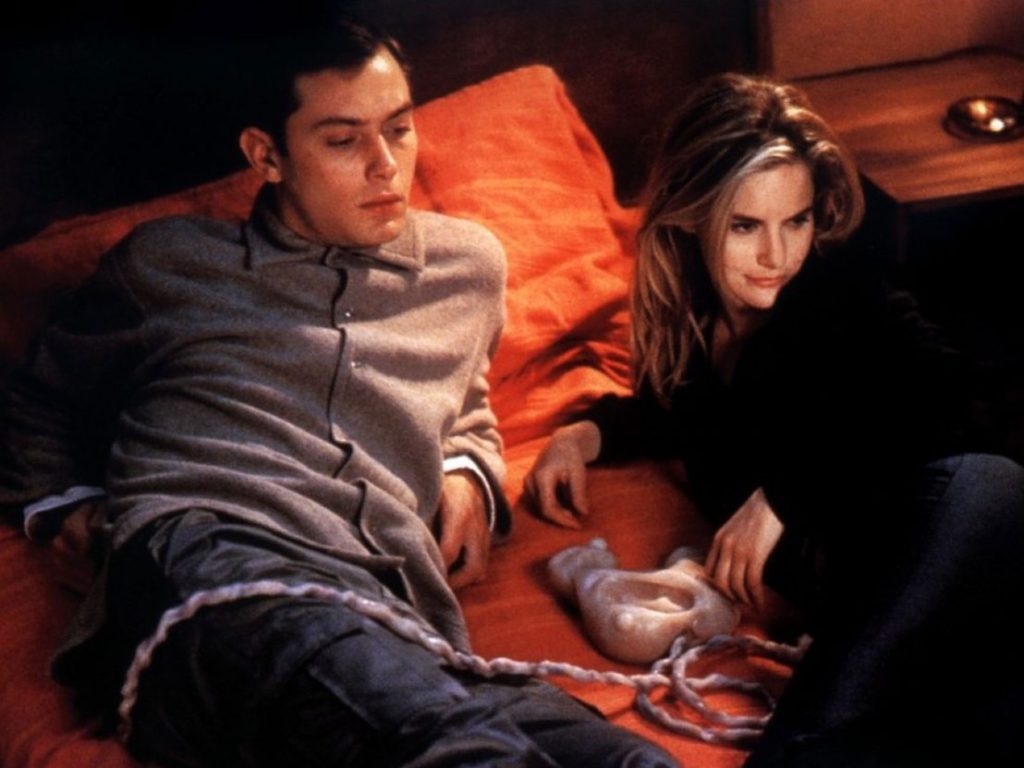
eXistenZ (David Cronenberg) Gleefully macabre mindfuck from David Cronenberg. Jennifer Jason Leigh plays a first-rate game creator named Allegra Geller, who is forced to go on the run with a novice security man- Ted (Jude Law) after an assassination attempt during a demonstration of her new virtual reality game called “eXistenZ.” Typical Cronenberg sick touches- the game player is a pulsating, fleshy vagina-like apparatus that is plugged into a sphincter-like “bio-port” in the base of your spine. Even the assassin’s gun is made of cartilage and bone and shoots out teeth! No matter how squirm-inducing, it’s a film that never takes itself seriously- there’s a refreshing jokiness and high energy that keeps the film racing along at break-neck speed. Gorgeously filmed by Peter Sushitzky, this is further proof that Cronenberg is a demented, unique visionary.
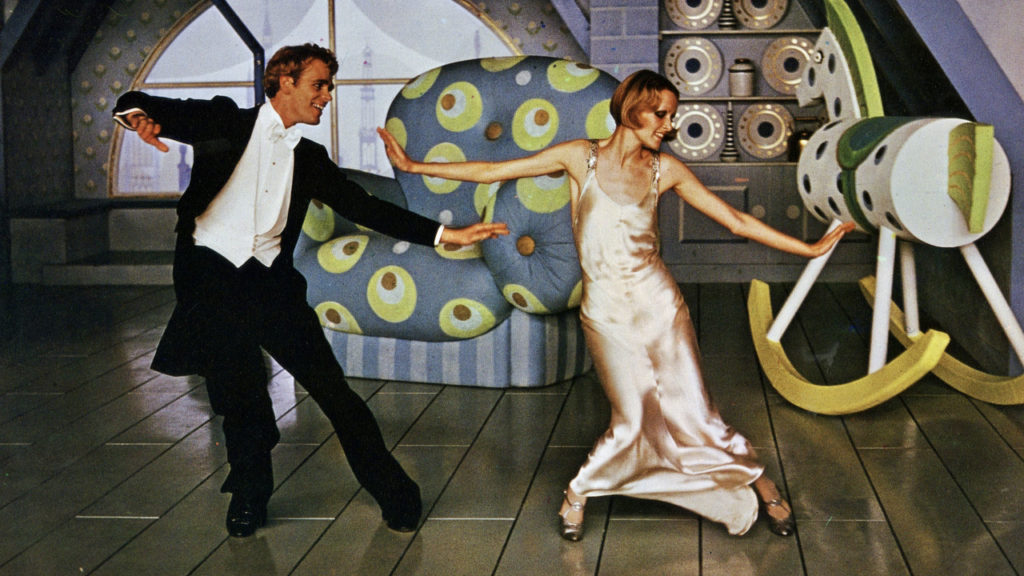
The Boyfriend (Ken Russell) Director Ken Russell followed his gloriously deranged The Devils with this surprisingly charming Busby Berkeley-like musical set in a rundown English music hall where the star (an unbilled, fabulous Glenda Jackson) breaks her leg and the stage manager (a genuinely lovely Twiggy) has to take her place. A Hollywood director in the audience fantasizes the fantastical musical dream sequences. And there’s the phenomenal dancing of Christopher Gable and the leggy, charming Tommy Tune. Criminally underrated and just wonderful.
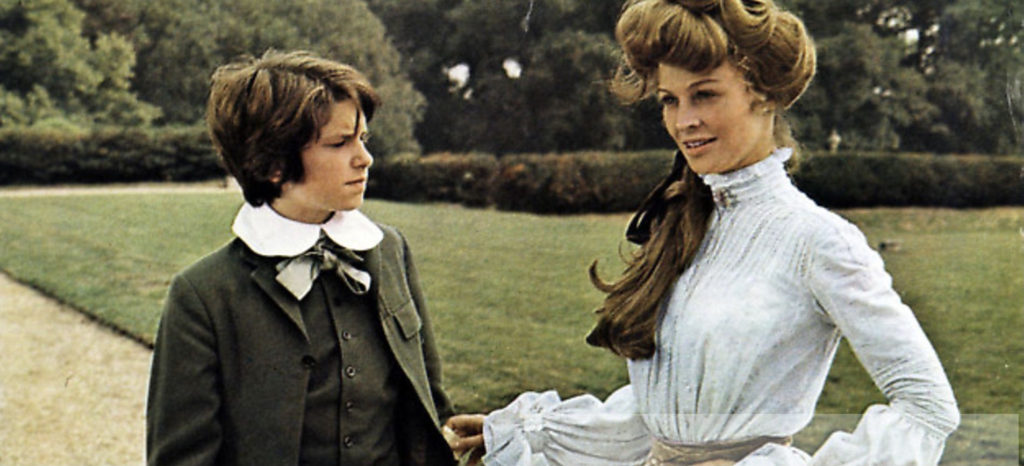
The Go-Between (Joseph Losey) Losey had great luck lensing films with screenplays by playwright of menace Harold Pinter like The Servant, but not enough know this exquisite 1971 film with a superb screenplay by Pinter and based on a L. P. Hartley novel. A young boy invited to spend some time at the country estate of his rich relatives becomes the unwitting messenger for an illicit affair between Julie Christie and nearby farmer Alan Bates. This tragic tale has a haunting power and subtlety. With Margaret Leighton, Michael Gough and Edward Fox.
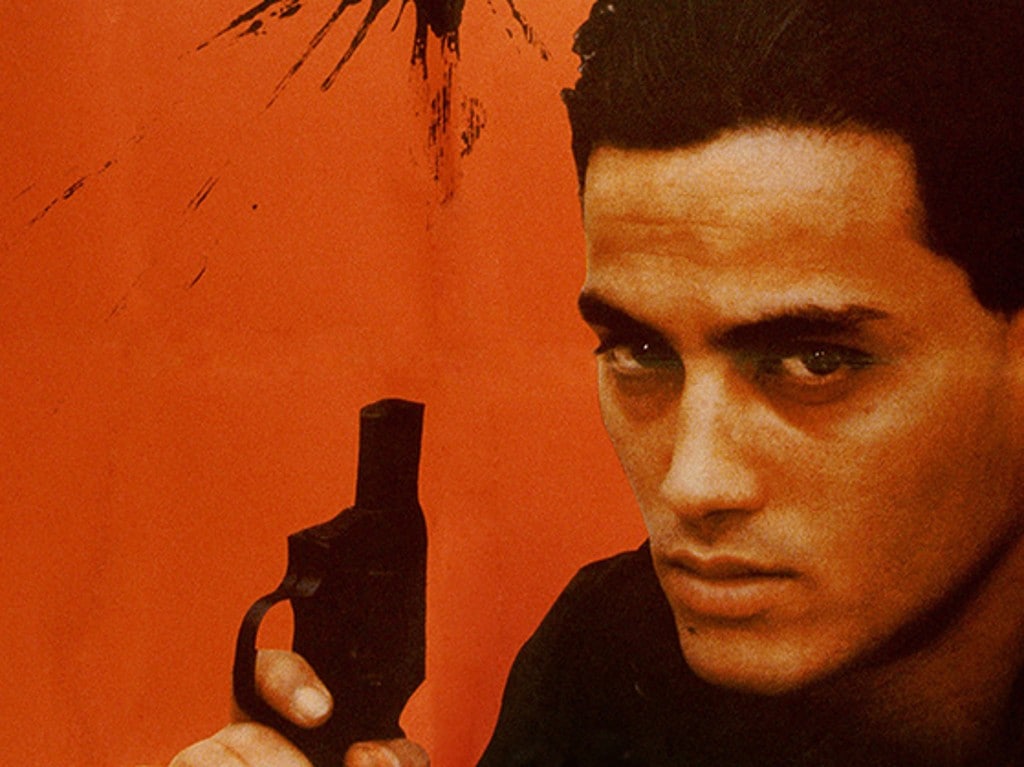
Mixed Blood (Paul Morrissey) Brilliant 1985 dark comedy about a gang of underage youths running the drug trade in Alphabet City. The kids are ruled by ruthless den mother Rita La Punta (played flamboyantly by Marilia Pera). Her enforcer son is played by the handsome and charismatic Richard Ulacia. It’s even more shocking now to see what the East Village actually looked like in the 70s and 80s. Poor, doomed Rodney Harvey plays one of the posse and Angel David is quite good as their nemesis Juan the Bullet. While I love the trilogy of Trash, Flesh and Heat, I think this is one of Morrissey’s truly great movies.
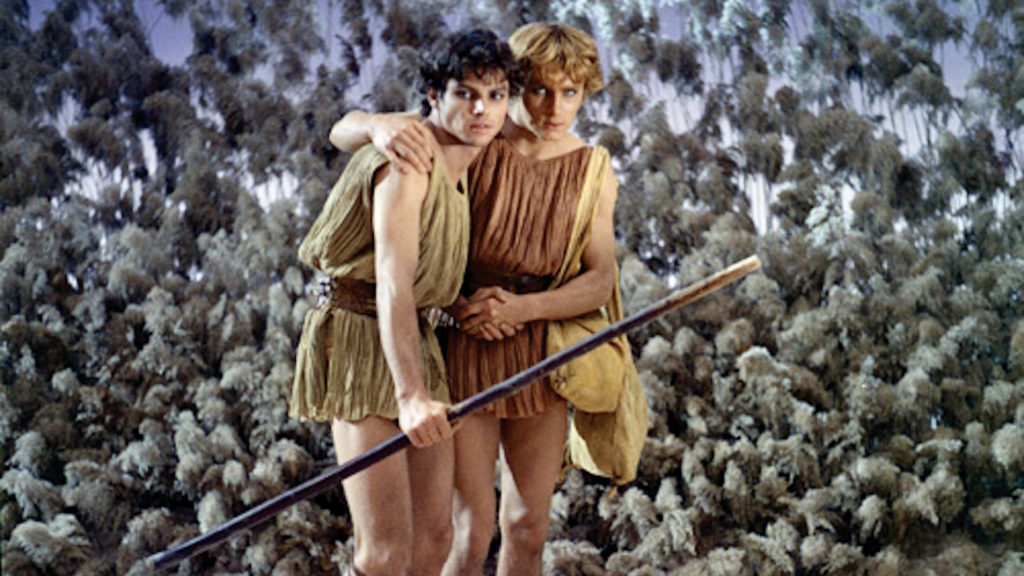
Fellini Satyricon (Federico Fellini) Fellini’s psychedelic, surreal adaptation of the Petronius work set in the era of Nero in Imperial Rome. It’s a series of misadventures of the on-and-off-again lovers (played by Martin Potter and Hiram Keller), but it’s a visual trip from start to finish. Some critics by then were weary of Fellini’s visual freak show, but I was hypnotized and dazzled by it when I first saw it and went to see it every day after work for two weeks. Some critics did praise the film highly though and Parker Tyler deemed it, “the most profoundly homosexual film in all history.”
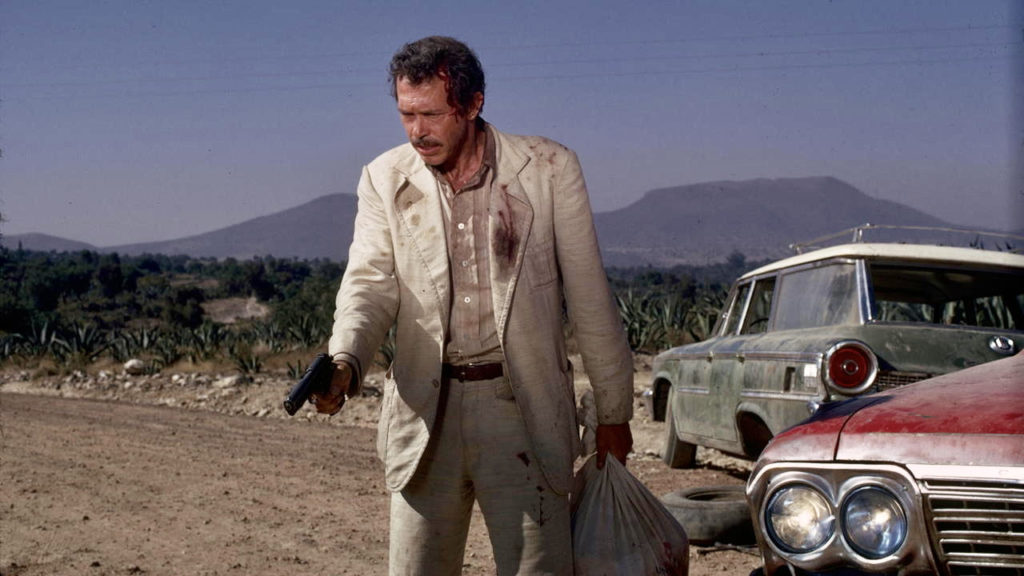
Bring Me the Head of Alfredo Garcia (Sam Peckinpah) Reviled when it came out in 1974, this brutal and perversely brilliant Sam Peckinpah film is about a powerful Mexican crime lord, whose daughter gets pregnant. When he finds out the name of the baby’s father he demands, “bring me the head of Alfredo Garcia.” Warren Oates plays Bennie, a grubby Mexican saloon singer who finds out that Alfredo is dead and digs up his grave to transport the head back for cash (his last chance for the brass ring). But many greedy, seedy gangsters follow behind him. It’s a dark, savage, almost existential tale.
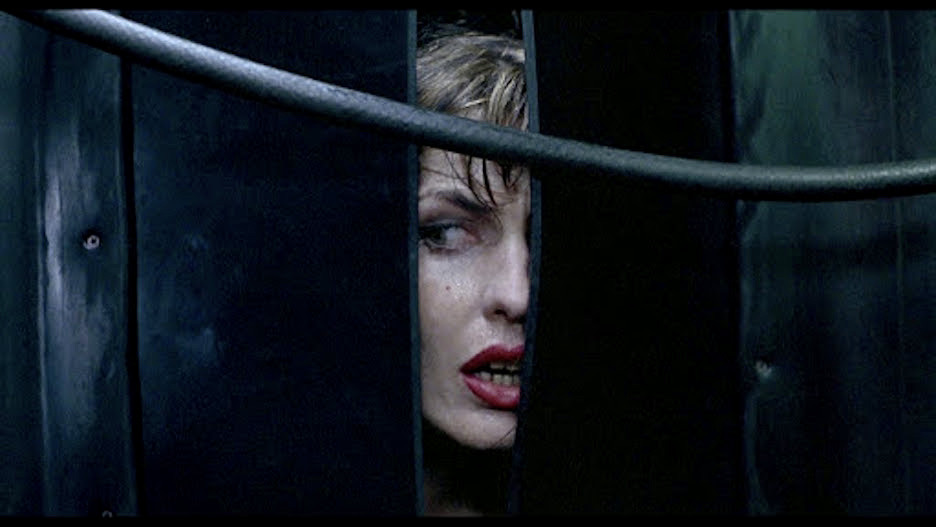
Sleepless (Dario Argento) Italian horror maestro Dario Argento, returned from the financial disappointment of The Phantom of The Opera with a return to form in this 2001 “giallo” thriller set in Turin. Max von Sydow stars as an ex-policeman who comes out of retirement because of a series of gruesome murders which mirror similar crimes he solved 17 years ago. Many of Argento’s “greatest hits” are on display- stylized murders (a harrowing chase through a deserted train is stunning); the clues including a strange nursery rhyme; dwarf killers; not to mention music by Goblin.
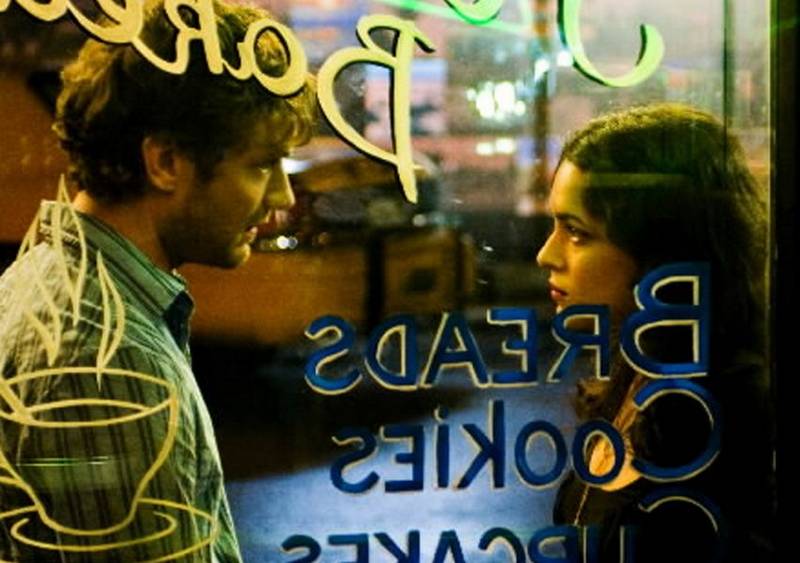
My Blueberry Nights (Wong Kar-Wai) Director Wong Kar Wai’s (In the Mood for Love) first English speaking film shot in America starring Norah Jones, Jude Law and Natalie Portman is a wistfully romantic tone poem. Jude Law plays a N.Y. cafe owner who gets periodic postcards from Elizabeth (Norah Jones) as she winds her way across country trying to get over a bad love affair. Along the way she meets other battered souls- a cop (David Strathairn, who’s superb) drowning his sorrows in alcohol over his wife (Rachel Weisz) leaving him. And in Nevada a reckless gambler (Natalie Portman) who cannot convince Elizabeth that most people shouldn’t be trusted. The cinematography and soundtrack is lovingly lush, and there are moments of aching poignancy in this minor, but sublime, film from one of cinema’s true masters.
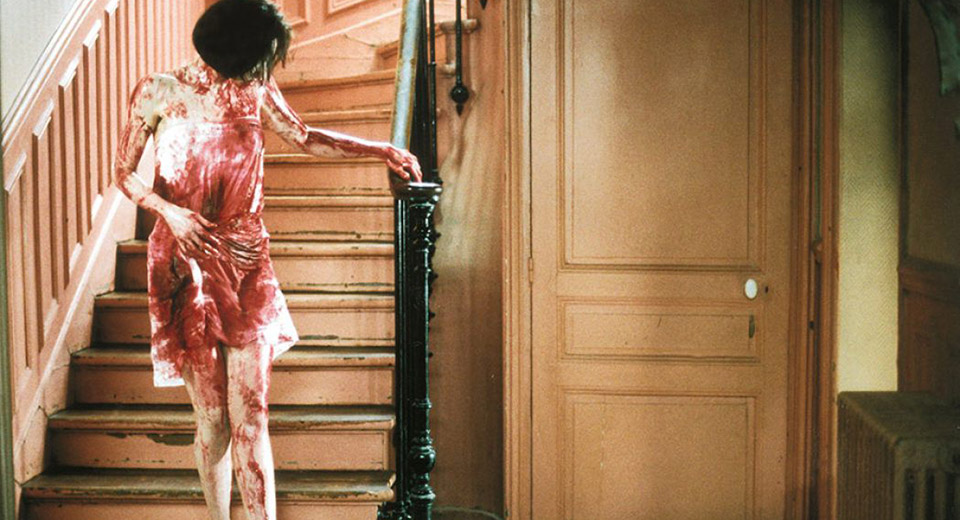
Trouble Every Day (Claire Denis) “Eat me,” achieves a radical interpretation in Claire Denis’ (Beau Travail) gruesome art house horror film. Beatrice Dalle (Betty Blue) plays Core, a young woman who suffers a malady of the brain that makes her pick up truckers at rest stops and then chew their faces off. Her scientist husband Leo (Alex Descas) locks her up at home but she keeps escaping. Meanwhile, a honeymooning American couple arrive in Paris and the husband Shane (Vincent Gallo) is frantically trying to find Leo, convinced he is suffering the same disorder. Proof is the bite marks on his new bride’s (Tricia Vessey) shoulder. This was a scandal at Cannes- people stormed out because they were either shocked or thought it was pretentious as hell. It’s a bit of both, but because Denis is an artist the weird slow pace has a genuinely disarming effect. Gallo and especially Dalle are ideal- they both have a feral quality that’s sexy and dangerous

Last Days (Gus Van Sant) Michael Pitt is fierce, funny, and fucked-up as a Kurt Cobain-like rock star in Gus Van Sant’s dreamy evocation of his last hours on earth. Stumbling through the woods, mumbling to himself. Wandering around his gone-to-seed but immense stone country mansion avoiding the stoned friends sleeping there. Playing guitar. Eating cereal. Writing notes in his diary. Having humorous encounters with a Yellow Pages salesman who stops by. This could actually be one of the best films about rock ever- it really captures the doomed artist spiraling sadly out of control and makes his universe and the people in it come vibrantly to life on screen with great compassion and artistry.
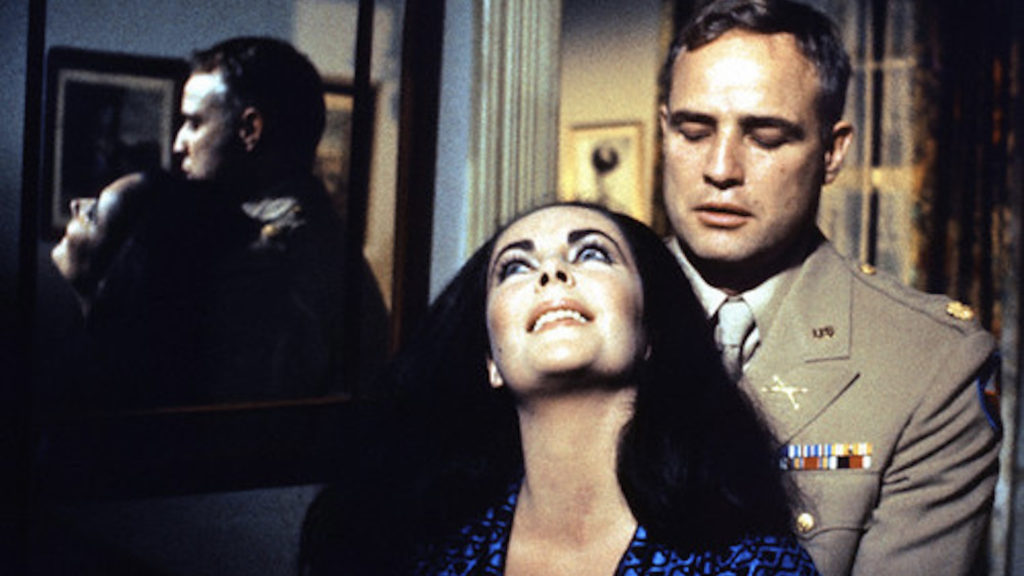
Reflections in a Golden Eye (John Huston) A fascinating experiment by director John Huston to film Carson McCullers’ perverse novella, set around an army base in the deep south. Marlon Brando plays the closeted Major Penderton, who is married to the shrill, emasculating Leonora (Elizabeth Taylor). She is secretly having an affair with her neighbor- Col. Langdon (Brian Keith). Langdon lives with his emotionally fragile wife (Julie Harris), who is devoted to her fey houseboy Anecleto (Zorro David). Major Penderton desires and follows a handsome soldier (Robert Forster), who he spies riding naked on horseback. But what Penderton doesn’t know is that the soldier slips unseen into his house at night to watch Leonara sleeping. This hotbed of twisted passions is probably better on paper, but Huston has corralled an amazing cast. He also filmed through a gold lens which has a disorienting quality (the studio forced Huston to release this in color after early audiences complained). Brando’s performance is absolutely phenomenal.

